The five essential spices for perfect chicken soup are black pepper, thyme, bay leaf, parsley, and garlic powder. Add these at specific cooking stages for maximum flavor impact: black pepper and garlic powder during sautéing, thyme and bay leaf during simmering, and parsley in the final minutes. This guide reveals exactly which spices work best, when to add them, and simple measurements any home cook can follow - no special equipment needed.
Based on culinary science research, we've simplified complex flavor chemistry into practical techniques that guarantee restaurant-quality results. Whether you're making soup for the first time or reviving a family recipe, these actionable tips eliminate guesswork while maintaining the depth that makes chicken soup special.
Table of Contents
- Why These 5 Spices Create Perfect Chicken Soup
- The 5 Essential Spices (With Simple Measurements)
- Best Flavor Combinations for Different Tastes
- When to Add Each Spice for Maximum Flavor
- Common Spice Mistakes That Ruin Chicken Soup
- Simple Implementation Guide
- Frequently Asked Questions
Why These 5 Spices Create Perfect Chicken Soup
Chicken soup reaches its full flavor potential when spices interact with the broth at the right temperature and time. While many spices work in soup, these five create the perfect balance of earthiness, brightness, and depth that defines exceptional chicken soup. The key is understanding when to add each spice based on how its flavor compounds release during cooking.
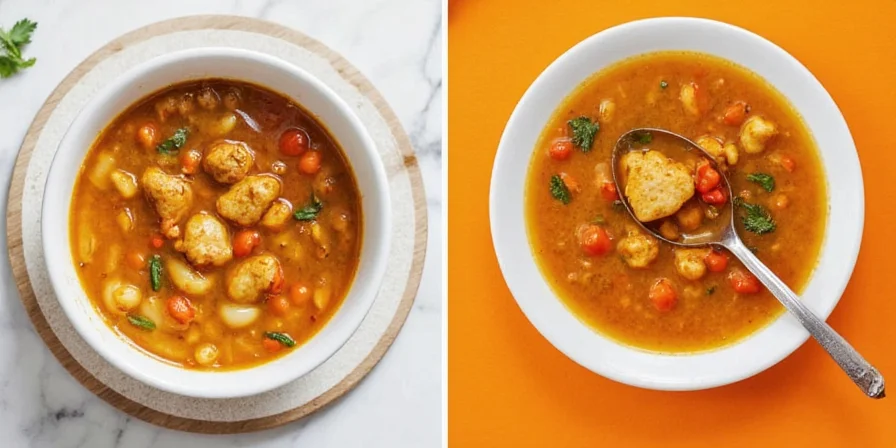
The 5 Essential Spices (With Simple Measurements)
These spices work together to create balanced flavor without overwhelming the chicken. Use these easy-to-measure amounts for a standard 4-quart pot:
- Black Pepper – 1 teaspoon freshly cracked (adds warmth and enhances other flavors)
- Thyme – 1 teaspoon dried or 1 tablespoon fresh (provides earthy depth)
- Bay Leaf – 1-2 leaves (adds subtle complexity)
- Parsley – 2 tablespoons chopped fresh (brightens at the end)
- Garlic Powder – ½ teaspoon (creates consistent savory notes)
These measurements work for most home kitchens. For stronger flavor, increase by half a teaspoon at a time. Avoid doubling amounts initially, as spice flavors intensify during simmering.
Best Flavor Combinations for Different Tastes
Once you've mastered the basics, try these proven pairings to customize your soup:
| If You Like | Add | How Much | When to Add |
|---|---|---|---|
| Classic comfort flavor | Celery seed + onion powder | ¼ tsp each | With vegetables |
| Lighter, brighter soup | Dill + lemon zest | 1 tbsp dill, 1 tsp zest | Final 5 minutes |
| Richer, deeper broth | Nutmeg + caraway | Pinch of each | During simmer |
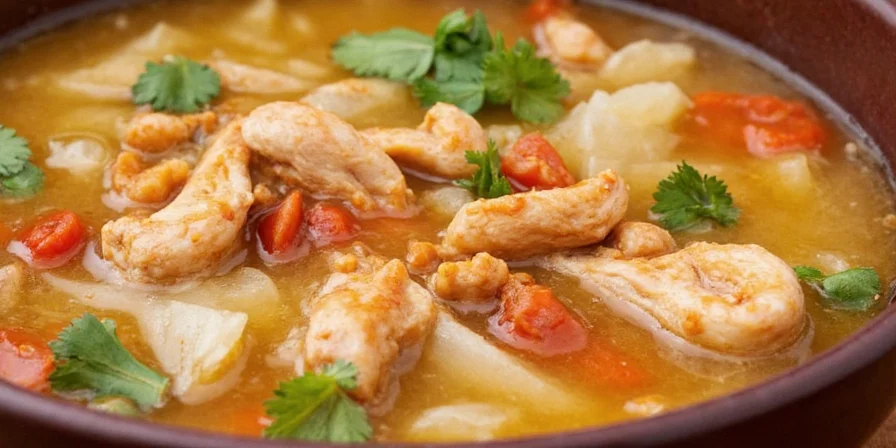
When to Add Each Spice for Maximum Flavor
Timing matters more than most cooks realize. Add spices at these stages for best results:
- During sautéing: Black pepper and garlic powder (they need heat to release flavors)
- When liquid is added: Bay leaf and thyme (they need time to infuse)
- Final 5-10 minutes: Fresh parsley (preserves bright flavor)
- Never add: Fresh dill or delicate herbs at the beginning (they become bitter)
Pro tip: For deeper flavor, toast whole spices like pepper and caraway in oil for 1 minute before adding other ingredients. This "blooms" their essential oils for better flavor release.
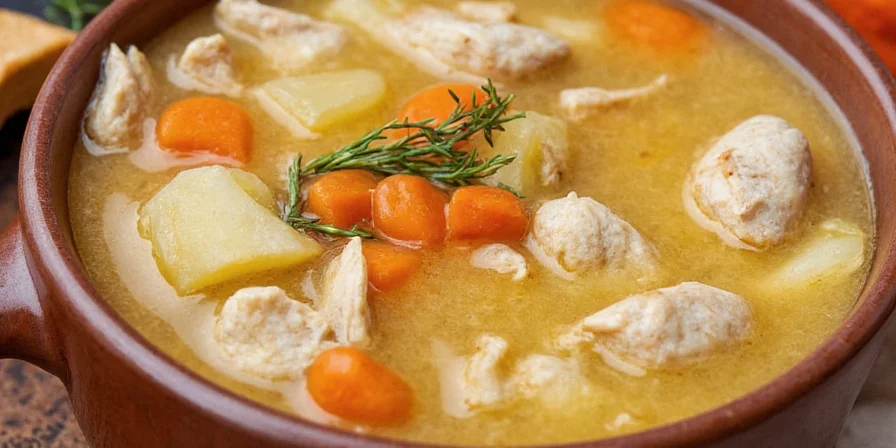
Common Spice Mistakes That Ruin Chicken Soup
Avoid these frequent errors that make soup taste flat or bitter:
- Adding all spices at once – Different spices need different cooking times to reach their flavor potential
- Using old spices – Most spices lose potency after 6 months; test by rubbing between fingers (should release strong aroma)
- Overusing bay leaf – One leaf is enough for 4 quarts; too many creates medicinal flavor
- Adding fresh herbs too early – Delicate herbs like parsley and dill lose flavor when cooked too long
- Substituting fresh for dried incorrectly – Use 3x more fresh herbs than dried (1 tsp dried = 1 tbsp fresh)
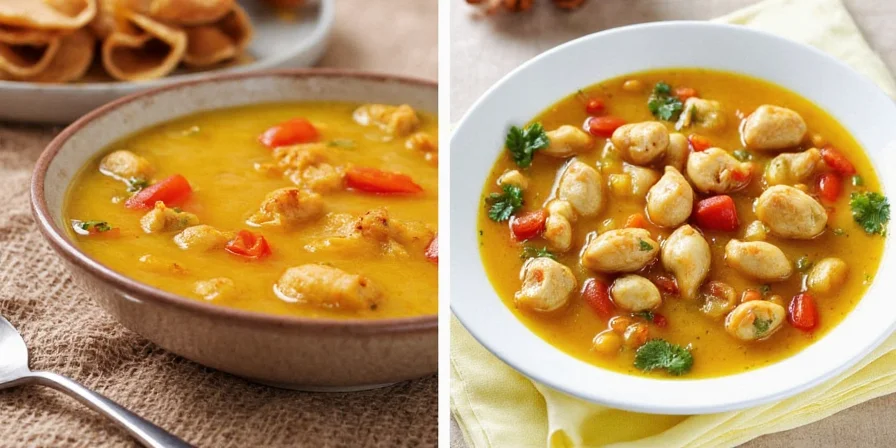
Simple Implementation Guide
Follow this step-by-step process for consistently flavorful chicken soup:
| Spice | Form | Amount (4-quart pot) | When to Add |
|---|---|---|---|
| Black Pepper | Freshly cracked | 1 tsp | During sautéing |
| Bay Leaf | Whole | 1-2 leaves | When adding liquid |
| Thyme | Dried | 1 tsp | When adding liquid |
| Garlic Powder | Pure granules | ½ tsp | During sautéing |
| Parsley | Fresh, chopped | 2 tbsp | Final 5 minutes |
For best results: Start with these base measurements, then adjust to taste after 20 minutes of simmering. Remember flavors continue developing as soup sits, so under-spice slightly if serving later.
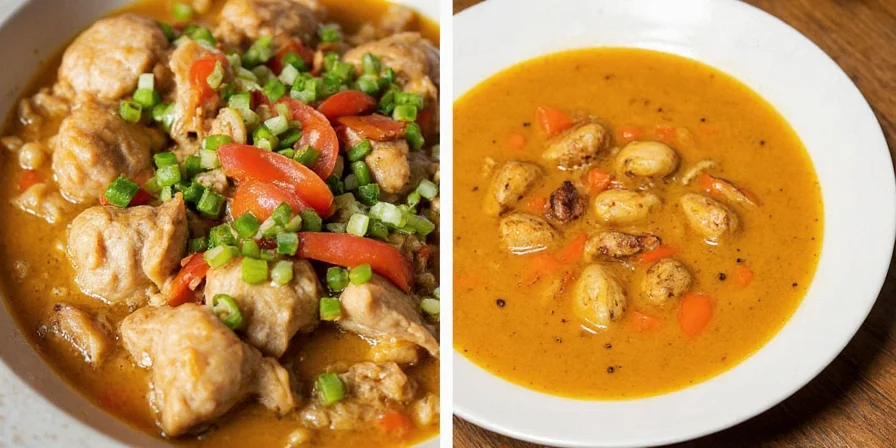
Frequently Asked Questions
Can I use fresh spices instead of dried?
Yes, but adjust amounts: Use 3 times more fresh herbs than dried (1 teaspoon dried = 1 tablespoon fresh). Add fresh herbs later in cooking to preserve their flavor. Never substitute fresh for dried during the initial sauté phase as excess moisture prevents proper flavor release.
How do I fix soup that's too spicy without watering it down?
Add a small potato (about 2 ounces) during the final 10 minutes of cooking - it absorbs excess spice without diluting flavor. For overly herbal soup, add a squeeze of lemon juice (about 1 teaspoon per quart) which brightens and balances strong flavors.
Why does my soup taste bitter even with correct timing?
Bitterness usually comes from old spices or wrong bay leaf variety. Use Turkish bay leaves (Laurus nobilis), not California bay. Replace spices every 6-12 months - test by rubbing between fingers; if aroma doesn't release within 10 seconds, they're too old.
Can I make great chicken soup without measuring spoons?
Absolutely! For 4 quarts of soup: use 4 good pinches of dried thyme, 8 cracks of black pepper from the mill, one small handful of fresh parsley, and one regular-sized bay leaf. The key is adding spices gradually and tasting as you go.
Final Tips for Perfect Chicken Soup Every Time
Great chicken soup starts with proper spice timing and measurement. Begin with the essential five spices in the right amounts, add them at the appropriate cooking stages, and adjust to taste. Remember that flavors continue to develop as soup sits, so slightly under-spice initially if serving later. The most important rule: taste as you go and trust your palate. With these simple guidelines, you'll create consistently delicious chicken soup that satisfies everyone at your table.
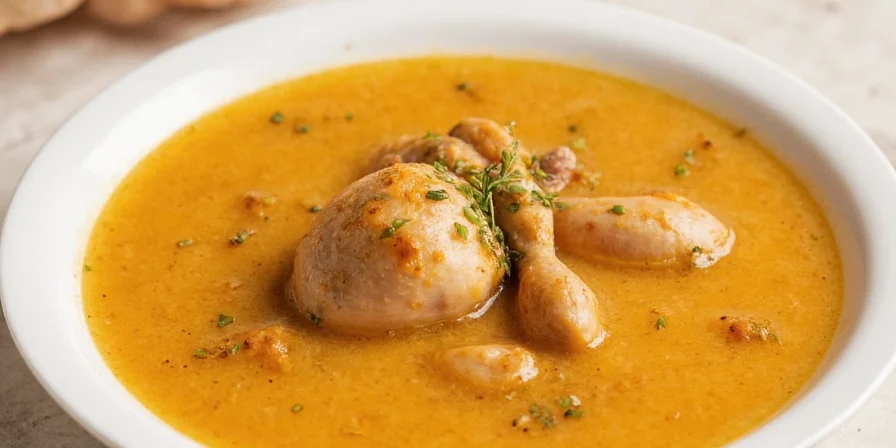
For best results, make your soup a day ahead - the flavors meld beautifully overnight. Reheat gently without boiling to preserve delicate herb notes. Enjoy your perfectly spiced chicken soup!

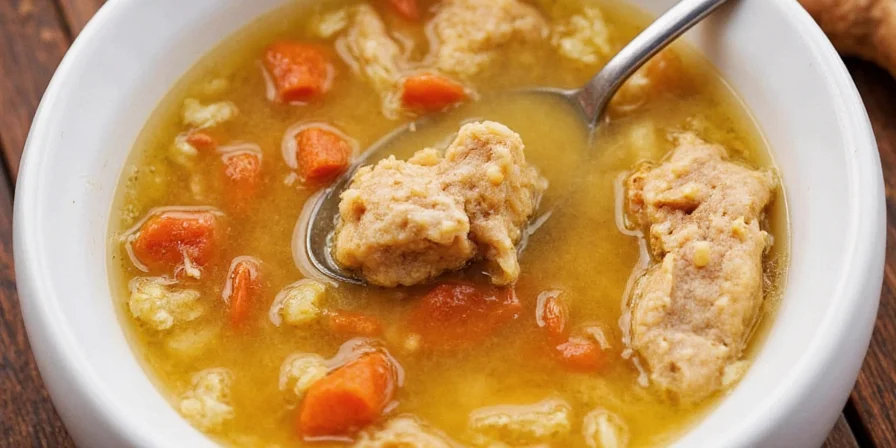









 浙公网安备
33010002000092号
浙公网安备
33010002000092号 浙B2-20120091-4
浙B2-20120091-4